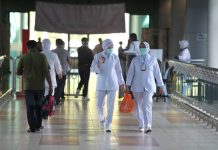For each hour of work that disrupts a person’s natural body clock, the risk of developing cardiovascular disease increases. Shift workers are therefore among the most susceptible to heart attacks because of this circadian misalignment or “social jetlag,” experts suggest.
Misalignment takes place when there is a disjoint between a worker’s biological rhythm, such as their sleep and waking patterns, and their day-to-day work schedule. Different people, however, tend to have different circadian rhythms.
According to Dr Sara Gamboa Madeira of the University of Lisbon, Portugal: “We all have an internal biological clock which ranges from morning types , who feel alert and productive in the early morning and sleepy in the evening, to late types , for whom the opposite is true – with most of the population falling in between. Circadian misalignment occurs when there is a mismatch between what your body wants and what your social obligations impose on you.”
Unlike previous studies which examined the unhealthy habits and sleep disruptions typically associated with shift work, Dr Madeira’s study puts more focus on investigating the discrepancies between people’s biological clock and “social” clock.
“Our study found that for each hour the work schedule was out of sync with an employee’s body clock, the risk of heart disease got worse,” Dr Madeira said.
Most workers (59%) had a jetlag of two hours or less, while a third had a jetlag of two to four hours. The bigger the discrepancy, the higher the risk for cardiovascular disease. The risk rises by 31% per hour of jetlag added, even after factoring in other variables such as sociodemographics, occupation, lifestyle, sleep characteristics and body mass index, experts said.
“These results add to the growing evidence that circadian misalignment may explain, at least in part, the association found between shift work and detrimental health outcomes. The findings suggest that staff with atypical work schedules may need closer monitoring for heart health. Longitudinal studies are needed to investigate whether late chronotypes cope better with late/night shifts and earlier chronotypes to early morning schedules, both psychologically and physiologically,” Dr Madeira said.






















